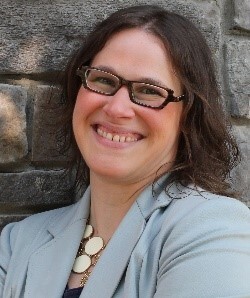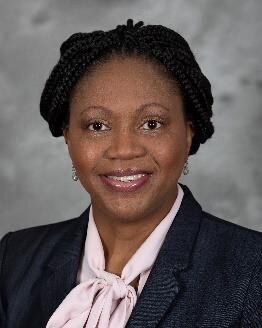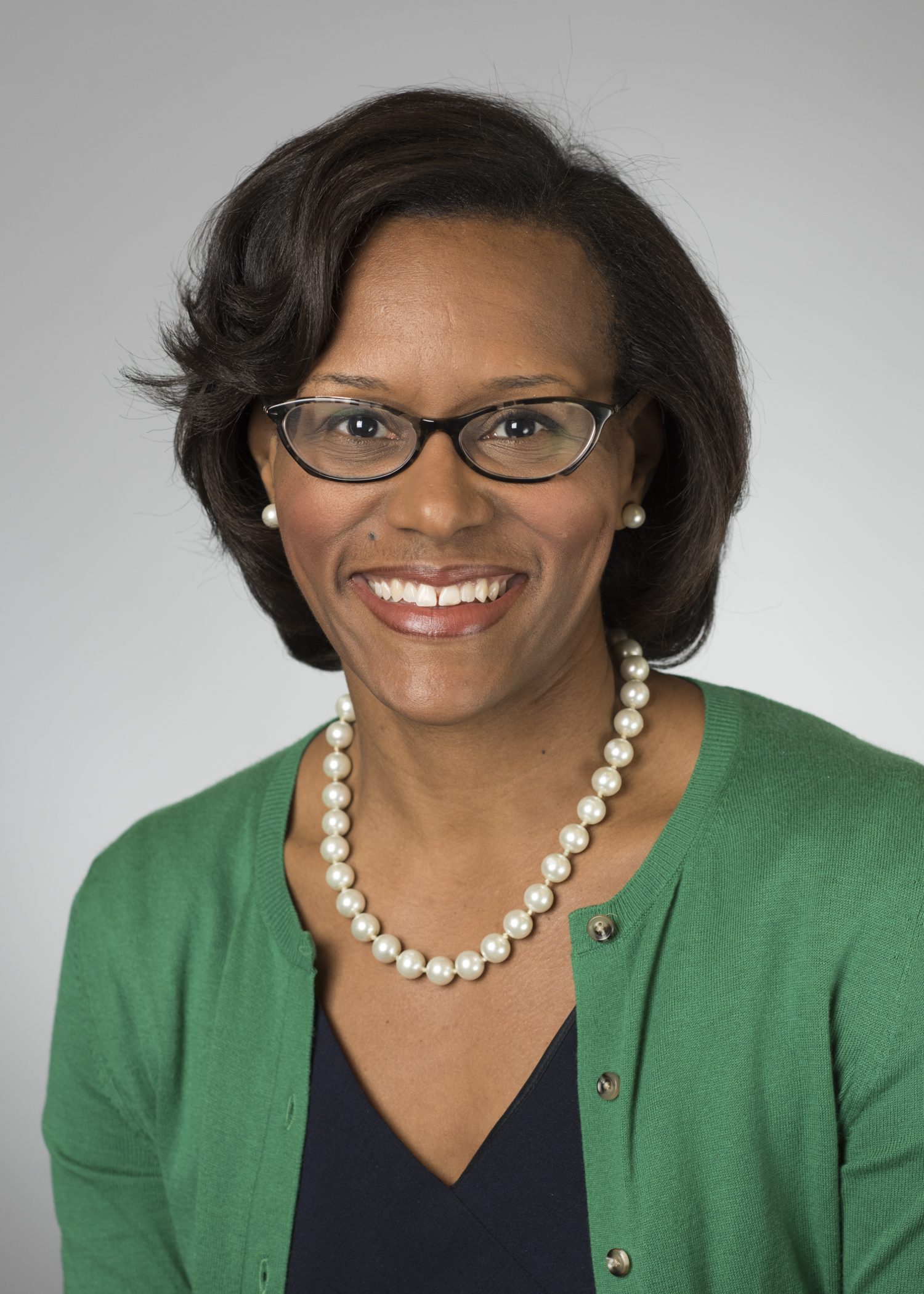
Inclusive and Safe Environments in Academic Medicine Series (IDEAS)
-
Register
- User - Free!
This series will feature ways in which AAMC-member institutions are implementing equity-focused interventions to cultivate safe and inclusive environments for their learners, faculty, staff, patients, and communities. Speakers will highlight strategies that help foster cultural awareness and belonging in academic medicine, such as relationship-centered skill-building, nonpartisan voter education, and more. This series was developed in partnership with the Group on Diversity and Inclusion (GDI) and the Group on Women in Medicine and Science (GWIMS).
About IDEAS
The AAMC IDEAS Learning Series provides actionable information about strategies that you can put into practice to become a more effective and successful leader, educator, and member of the academic medicine community.
-
Contains 2 Component(s) Recorded On: 06/05/2024
Given the need to provide high-quality care for increasingly diverse populations, it is essential for medical students to develop the skills and professional dispositions to identify and meet the needs of all patients. Indiana University School of medicine (IUSM) partnered with the Academy of Communication in Healthcare to develop the Achieving Inclusivity in Medicine (AIM) program for all incoming medical students.
Given the need to provide high-quality care for increasingly diverse populations, it is essential for medical students to develop the skills and professional dispositions to identify and meet the needs of all patients. Indiana University School of medicine (IUSM) partnered with the Academy of Communication in Healthcare to develop the Achieving Inclusivity in Medicine (AIM) program for all incoming medical students.
Launched in 2021, AIM is an eight-hour experiential, skills-based program designed to help matriculating medical students develop the foundational communication skills needed to create inclusive interactions. Informed by the Differences Matter program (Davis et al.), the curriculum uses a relationship-centered communication model with a diversity, equity, and inclusion lens with the goal of developing skills that could be used with peers and patients. The program, a mix of large and small group learning activities, is facilitated by trained IUSM faculty and staff.
Evaluation data suggests the program is highly effective in demonstrating an institutional priority to diversity, equity, inclusion, and justice (DEIJ) and yielded a positive impact on participant values and beliefs related to DEIJ. Additionally, faculty responses suggest the program aided in building an inclusive community amongst faculty participants.
About IDEAS
The AAMC IDEAS Learning Series provides actionable information about strategies that you can put into practice to become a more effective and successful leader, educator, and member of the academic medicine community.
Matthew Holley, PhD
Assistant Dean, Faculty Affairs & Professional Development
Assistant Professor of Clinical Family Medicine
Indiana University School of MedicineMatthew Holley, PhD, is an Assistant Dean for Faculty Affairs & Professional Development. He also serves as the Vice Chair for Faculty & Staff Affairs and Professional Development and as an Assistant Professor of Clinical Family Medicine for the Department of Family Medicine. Additionally, Dr. Holley serves as the Associate Director for the Academy of Teaching Scholars within Faculty Affairs and Professional Development (FAPD). His academic research is in the areas of medical student education, faculty development, inclusive teaching, organizational leadership, and healthcare disparities, with a particular emphasis on LGBTQ+ healthcare. Originally from Illinois, Dr. Holley graduated from Millikin University with a Bachelor’s degree in Speech and Debate and earned Master’s degrees in Higher Education and Philanthropic Studies along with his PhD from Indiana University.

Katherine Chartier, PhD
Instructional Design Consultant
Indiana University School of MedicineAs an instructional design consultant, Dr. Chartier leads curricular innovation by consulting with faculty to enhance instructional and assessment strategies in alignment with IUSM's mission and institutional learning objectives.

Maryann Chimhanda, MD, MS, FACOG
Assistant Professor of Clinical Obstetrics & Gynecology
Indiana University School of MedicineAfter completing her Obstetrics and Gynecology training in June 2010, Dr. Chimhanda joined a multi-specialty group and worked in a community setting as a generalist for almost 10 years. She joined the department of Obstetrics and Gynecology academic faculty at IUSM in June 2020. Dr. Chimhanda chose Obstetrics and Gynecology because this specialty allows her to develop and maintain long-term relationships with patients. She was drawn by the opportunity to improve the wellbeing of patients through medical and surgical modalities. It is her practice philosophy to listen, show compassion, educate patients, and involve them in the medical decision-making process.
-
Contains 2 Component(s) Recorded On: 06/11/2024
As academic medicine begins to recognize how structural racism drives inequitable health outcomes, it must also acknowledge the effects of structural racism on its workforce and culture.
As academic medicine begins to recognize how structural racism drives inequitable health outcomes, it must also acknowledge the effects of structural racism on its workforce and culture. Black physicians comprise ~5% of the United States physician population. Unique adversities affect Black women physicians, particularly during residency training, and contribute to the lack of equitable workforce representation.
Eliminating racialized inequities in clinical care requires addressing these concerns. By applying historical context to present-day realities and harms experienced by Black women (i.e., misogynoir), academic medicine can identify interventions, such as equity-focused recruitment and retention strategies, that transform the profession.
Learning objectives:
- Define the terms "weathering," "misogynoir," and "controlling images"
- Identify controlling images (e.g., archetypes and tropes) that attempt to justify misogynoir by shaping and organizing societal expectations and mistreatment of Black women
- Characterize examples of misogynoir and its impact on clinical care, academic medicine, and medical education
- Discuss interpersonal and institutional strategies to mitigate misogynoir
About IDEAS
The AAMC IDEAS Learning Series provides actionable information about strategies that you can put into practice to become a more effective and successful leader, educator, and member of the academic medicine community.
Brownsyne Tucker Edmonds, MD, MPH, MS
Professor of Obstetrics and Gynecology and Clinical Pediatrics
IU Health Endowed Chair in Health Equity
Associate Dean for Health Equity Research, Indiana University School of Medicine
VP, Chief Health Equity Officer, Indiana University HealthBrownsyne Tucker Edmonds is the inaugural Vice President and Chief Health Equity Officer for Indiana University Health and the Associate Dean for Health Equity Research for Indiana University School of Medicine, where she holds an endowed chair for Health Equity Research. Dr. Tucker Edmonds is a Professor of Obstetrics and Gynecology and Clinical Pediatrics at Indiana University School of Medicine, with training in general OBGYN, health services research, public health, and clinical ethics. She studies health equity and shared decision-making in reproductive health care. She is interested in understanding the impact of racism, classism, and culture on patient preferences and risk perceptions; physician decision-making and counseling; and ultimately, variations in treatment provision and service delivery. Her research on periviable decision-making has been supported by the NICHD, Robert Wood Johnson Foundation, Greenwall Foundation, and is currently supported by an R01 from AHRQ.
Dr. Tucker Edmonds’ received an AB in Community Health and African American Studies from Brown University. She received her MD from Brown Medical School, and, concurrently, completed an MPH at the Harvard School of Public Health. Dr. Tucker Edmonds trained in OBGYN at Duke University Medical Center; then entered the Robert Wood Johnson Foundation Clinical Scholars Program fellowship at the University of Pennsylvania, where she received health services research training and an MS in Health Policy Research.
Dr. Tucker Edmonds previously served as an Assistant Dean for Diversity Affairs at IUSM, and co-directed Workforce Development for the Indiana CTSI. She has served on ACOG’s Committee on Ethics, Committee on Government Affairs, and now, the Committee on the care of Underserved Women. She led Legislative Affairs for Indiana ACOG for ten years and is now the Immediate Past Chair of the Indiana Section. She is an ‘ELUM’ of the Executive Leadership in Academic Medicine (ELAM) Program. In 2021, Dr. Tucker Edmonds was elected to the American Gynecological and Obstetrical Society and elected as a National Academy of Medicine’s Emerging Leader in Health and Medicine. Dr. Tucker Edmonds is married to Dr. Joseph Tucker Edmonds, an Associate Professor of Africana Studies and Religious Studies. They live in Indianapolis with their daughter, Zora, who is the delight of their lives.

Katrice D. Cain, MA
Director, Racial Equity and Public Health
AAMCKatrice D. Cain, MA serves as the Director of Racial Equity and Public Health at the Association of American Medical Colleges (AAMC). In this role, she leads initiatives to dismantle racism, advance health equity, and promote public health in medical schools, health systems, and teaching hospitals.
Ms. Cain is highly recognized as a passionate leader, focused on implementing strategies to advance racial equity through community, institutional, systems, and policy change. She has more than a decade of experience developing research, programs, training, and resources. Her work underscores the importance of centering the voices within communities and establishing equitable partnerships to create sustainable change. She also serves on national committees and has published peer-reviewed articles in her areas of expertise.
She demonstrates an unwavering personal and professional commitment to advocating for racial justice and public health. Ms. Cain is currently pursuing a Doctor of Public Health degree, with a concentration in Health Equity and Social Justice, at Johns Hopkins Bloomberg School of Public Health.
-
Contains 2 Component(s) Recorded On: 06/18/2024
During this session, a representative from the AAMC’s Group on Women in Medicine and Science (GWIMS) and the AAMC’s Government Relations Representatives (GRR) will discuss voting as a social determinant of health and the use of this legal, nonpartisan initiative to increase awareness of current issues relevant to academic medicine.
Medical schools and teaching hospitals can support an inclusive democracy by encouraging civic engagement among learners, staff, and patients. Nonpartisan voter registration is a simple yet effective way for these institutions to advance their commitment to health equity and is allowable under federal law. The AAMC has developed a fact sheet in collaboration with Vot-ER, a nonpartisan organization that works to integrate voter education and registration into health care settings.
During this session, a representative from the AAMC’s Group on Women in Medicine and Science (GWIMS) and the AAMC’s Government Relations Representatives (GRR) will discuss voting as a social determinant of health and the use of this legal, nonpartisan initiative to increase awareness of current issues relevant to academic medicine. GWIMS and GRR reps will answer questions from participants and engage in dialogue about how faculty, staff, and learners can engage meaningfully in the voter registration process.
About IDEAS
The AAMC IDEAS Learning Series provides actionable information about strategies that you can put into practice to become a more effective and successful leader, educator, and member of the academic medicine community.
Allison C. Augustus-Wallace, PhD, MS, MNS, DEIC (moderator)
Associate Professor-Research
Director, Undergraduate Academic Pathway Programs for Diversity
Dept. of Medicine & Office of Diversity and Community Engagement
LSUHSC New Orleans, School of MedicineDr. Allison C. Augustus–Wallace leads and has several roles regarding Diversity, Equity, and Inclusion (DEI) Affairs committees and educational initiatives in the LSU Health Sciences Center-New Orleans (LSUHSC-NO) Schools of Medicine and Graduate Studies for Faculty/Staff/Professional Students (Medical and Biomedical). Through leadership responsibilities that promote equitable inclusivity, she works to promote greater educational access, increase the presence of historically-excluded and marginalized groups of people in both medicine and biomedical research, and promote health equity and improved health outcomes for marginalized and overall collective communities.
In 2020, Dr. Augustus-Wallace earned Certification in Diversity, (Equity), and Inclusion from Cornell University. In addition to serving in active roles with Sigma Xi such as the Associate Director of the Research and Doctoral Universities Constituency Group, as well as a member of the 2022 and 2023 IFoRE Meeting Planning Committees, Dr. Augustus-Wallace is an active member of other professional organizations: the Maximizing Access Committee of the American Society for Biochemistry and Molecular Biology; the Health Professions Chapter of the National Association of Diversity Officers in Higher Education; the AAMC Group on Women in Medicine & Science Steering Committee; the Editorial Board of the AAMC’s peer-reviewed journal, Academic Medicine; the NIH-Women of Color Research Network; the Law Committee of the American Public Health Association; the Association of Women in Science-National & Southern Louisiana-LSUHSC Chapter; and others.

Ally Perleoni, MA
Director of Government Relations
AAMCAlly Perleoni, MA was named to Modern Healthcare’s inaugural 40 under 40 list. The award recognizes “rising stars” in health care and highlights their contributions and accomplishments. At the AAMC, Ally lobbies on behalf of all U.S. medical schools and 400 major teaching hospitals. Her issue portfolio focuses on clinical issues, patient care, physician payment, graduate medical education, and maternal mortality. Prior to her time at the AAMC, Ally was a federal lobbyist at the American Academy of Pediatrics, where she advocated for the health of infants, children, and adolescents. Previously, she served as the manager of government relations at the Healthcare Information and Management Systems Society, where she developed and enacted a government relations strategy for health information technology policy in their CapSite division. Ally also worked as a graduate assistant at the Women & Politics Institute at American University and as a lead research analyst for the Vermont Legislative Research Service. She is a graduate of the American University School of Public Affairs, where she earned her master’s degree in political science, and the University of Vermont College of Arts and Sciences, where she completed her bachelor’s degree with honors in political science.
